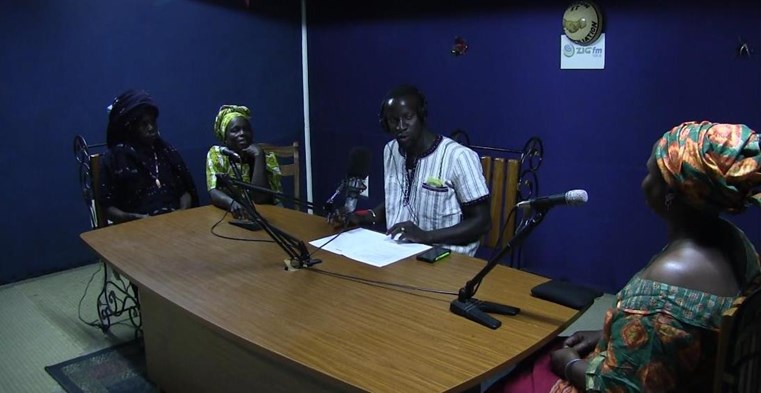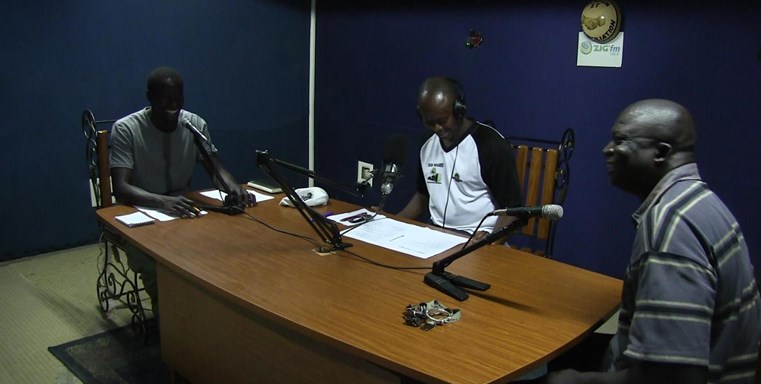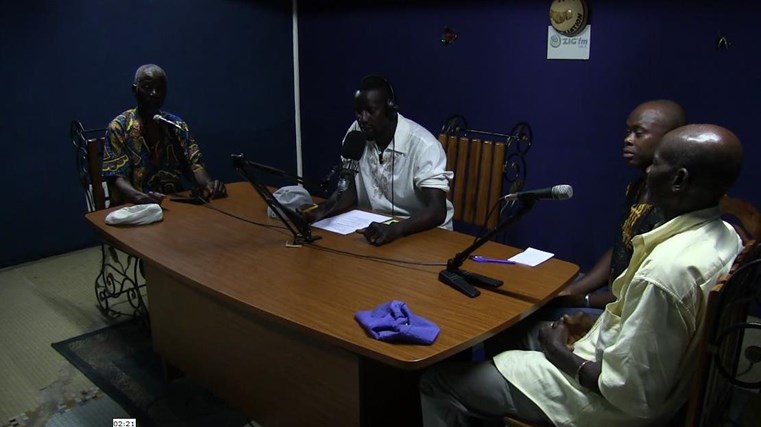Eegimaa
The 'Effalah' Radio Shows in Gújjolaay Eegimaa (Banjal)
Eegimaa is an endangered language which is threatened with extinction due to a massive rural exodus away from the Eegimaa villages to cities, coupled with a shift to major languages such as French and Wolof, and a serious decline in the transmission of the language to new generations. When a language dies, a vast amount of knowledge and experience acquired by its speakers over centuries disappears. Such knowledge includes medical and environmental knowledge as well as laws and cultural practices which reflect the way speakers relate to each other and to their environment.
One of the principle goals of this project is to contribute to the revitalisation of the language by promoting a positive attitude among speakers towards it. This includes increasing the visibility of the language in the media and contributing to the ongoing literacy programme with the production of reading material for children and adults.
The most important research impact of this project has been the ‘Effalah’ radio programme, the first ever radio programme organised in the Eegimaa language. ‘Effalah’ is the name of the place where people from the ten villages of Mof-Ávvi (the Eegimaa speakers’ homeland) gather to discuss extremely sensitive issues regarding their lives. This name was borrowed and given to the radio programme, a move that was well received in the community, since the topics of the radio shows were very important to the current life of Eegimaa speakers. As stated at the beginning of every radio show, the aim of the programme was to discuss issues relating to the speakers’ history and their current life in order to better prepare for the future of the next generation.

The radio series was broadcast in ZigFM 100.8, a private radio station which broadcasts throughout the region of Ziguinchor (Southern Senegal).
The shows in the series focussed mainly on the most endangered aspects of the language and culture, like religious rituals and ritual language; inheritance and aspects of social organisation. There were also shows on local political issues (with the Mayor’s deputy as an honorary guest), and a show on health, in which a medical doctor was invited to provide information on the prevention and treatment of the most common life threatening diseases such as malaria, diabetes, yellow fever and tuberculosis.

The radio programme greatly benefited from constant and enthusiastic contributions from Eegimaa speakers who called into the show to contribute to the debates and share their knowledge, or their views on the issues being discussed.

The following are quotes from some of the contributors to the radio shows:
‘The Effalah radio programme needs to come back soon. Since it ended, people have been asking me when it is going to restart. Wherever I go, and whenever there is a gathering, everyone asks me when the series of the radio shows is coming back.’ Nestor Diatta, Co Presenter of the Effalah radio Programme.
‘I am calling to thank you very much for organising this series of radio shows. I think these shows should have started years ago. If that was the case, we would have been really ahead by now. All the other communities have radio shows, but we don’t ... So I am really happy that you have come to do them. Many thanks for that.’ Antoine Njóogan Tendeng
‘This radio programme REALLY makes me happy!! I pray to God that it continues for a long time. I have been listening to the shows since they started… and… Ooh! I am REALLY overwhelmed! I am so happy I don’t even know what is making me happy anymore! Really! Thank you so much for organising them, and please, greet the guests you have invited today!’ Suzanne Bassène
‘I am a fisherman and I live on the river side with my friends during the fishing season. I told my friend that we would be having a series of radio shows in our language but no one believed me, because we never had this before. So we had a bet. When the programme started, I got my money. Then we had a second bet. I was arguing that you (the host) must belong to the 1972s generation, because of the way you spoke on the radio and the topics you discussed there. This time I lost the bet, and I had to pay, when we found out that you are actually younger.’ A fisherman.
‘I just wanted to say that I really love your radio shows!!! Now! You are telling us that the radio shows will end soon! Please tell your funding body that, we the community, are REALLY happy about what they are helping us to achieve! We would love them to extend the funding and make the series more permanent...’ Michelle Bassène
‘I am a palm wine tapper. I used to work in the palm groves until after 8pm. But since these radio shows started, I always make sure I am done with my work before the show starts at 7pm. I have not missed a single show, and I have listened to every one of them from beginning to end.’ Jean Pierre Diatta
‘The atmosphere in the villages is quite unique when the show begins. I listen to it on my mobile phone walking around. Every time I go past a house or a shop, I see people sitting in groups around one radio with the volume up to allow those who do not own one to listen to the show. It’s really nice.’ Jules Joutibo Sagna
‘This is Étekk speaking. …The problem with us is that when we move to cities, we are ashamed to speak our language… Keep working hard to make sure they extend this series of radio shows.’
‘I am From Bútaam (outside Eegimaa area)! I am calling to say that I really like your radio shows! Here, we have been listening to them assiduously since they started. Keep doing your best because they are really helping us understand our history and our cultural practices. I won’t be long, but I wanted to encourage you. Greetings to you and your guests, and may God protect you all!’ Jean Christophe Sagna (Sociologist)
‘My name is Faustin Forcé Bassène (from Elubalir). I am really excited about your radio programme, because we are learning so many things we did not know about ourselves before. So I really thank you for that.’
‘I am calling from Samé (the Mandinka speaking area). I have been looking for your contact details all these days, just to let you know how happy I am about this series of radio shows. I’ve always been concerned that we never hear anyone speaking our language on the radio. Finally this has happened today, and I am really excited about it!’ Jína Bassène
‘There has never been a single radio show in our language till this one started. Thank you so much for that, and may god protect you and the guests you invited today...’ Attiti
‘My name is Sally Bodian (Speaking in Jóola Fogny). I am just calling to say that your shows are really great, thank you…’
‘I am calling to thank you and your guests for these shows! I would like to congratulate you all, and I pray that this series of radio shows develops even further. I hope that your funding body decides to extend it before it ends, so that it can keep raising awareness about issues in our lives.’ Musuba

